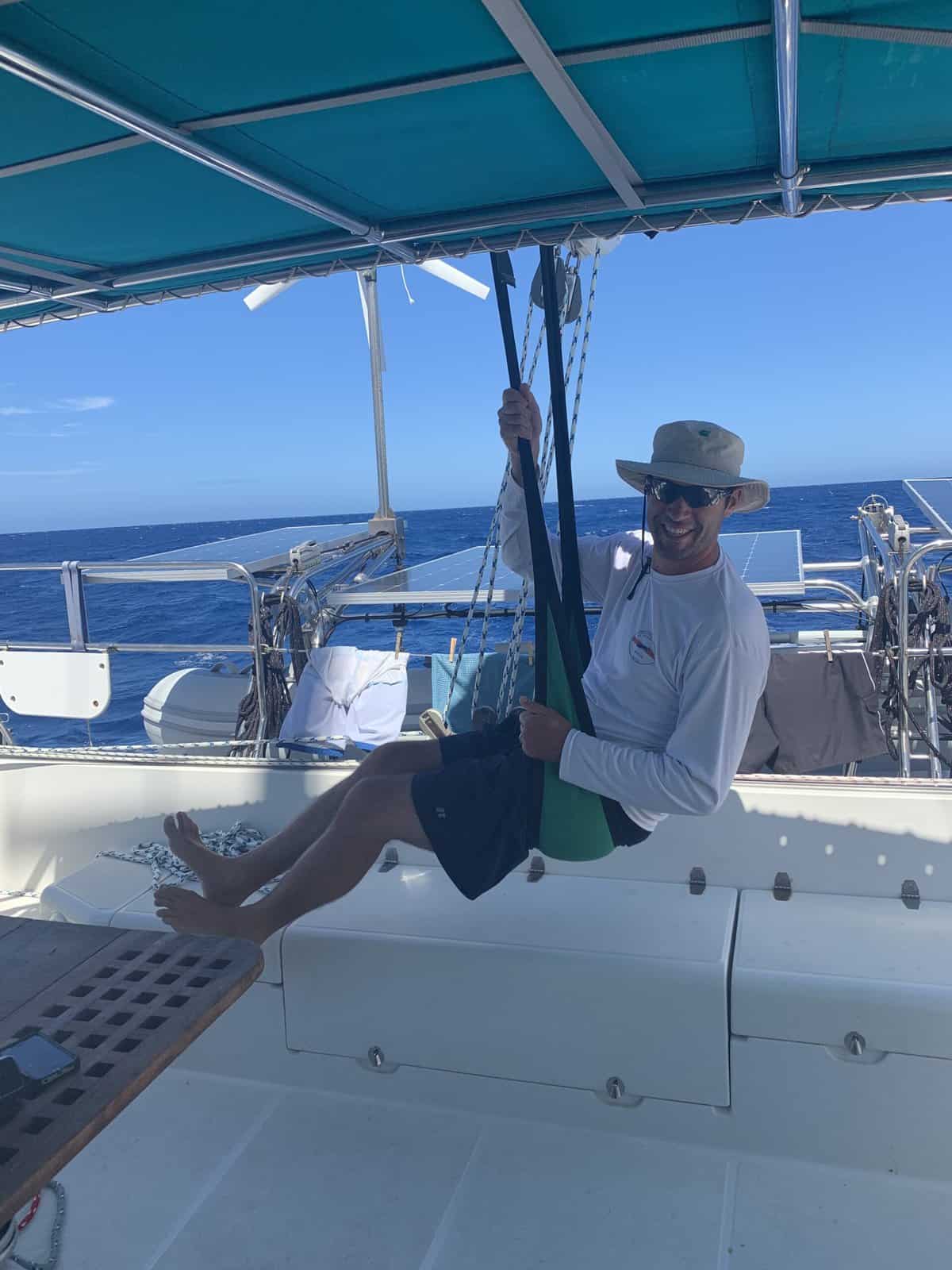
“Are you out of your mind!?” Prepare for these words, because at least one loved one is bound to speak up, when you announce your liveaboard plans.
As they should.
Are you worried about what your family and friends might think, or say, or scream, when they hear about your idea?
Perhaps they already have been gently, and not so gently, reminding you of the millions of dangers out there and of your, hm, lack of responsibility, “Think about the kids!”.
Here is a cool post about the most common concern:
If this sounds familiar, you are not alone.
When we shared our plan to live on a boat, we experienced both – encouragement and disbelief. While Joe’s side of the family had a long history of sailing. My folks were far from any significant body of water.
There were two kinds of boats my side of the family knew – the cruise ship and the small fishing boat (with oars). So, which one were we going to live on exactly?
For more FAQ you are likely to hear, read this:
You can probably imagine that my parents and relatives were a bit shocked.
But, we managed. And so did they, in their own way.
While there is much you can do, here is what you should NOT do, because it won’t help, trust me! And, of course, suggestions of how to address these issues. otherwise it would not be a very helpful post.
So, here are the concerns and questions you might hear:
“We are very worried about you.”
Do not tell them to relax!
They love you, which is why they are worried.
Instead – ask them what worries them and answer their questions. Validate their feelings and fears. You probably shared (and still do) many similar ones.
Arrange a time to sit down and talk about it. Pick a casual setting – maybe out to lunch. Avoid family dinners and “heavy” gatherings, you don’t want unlimited time. You need to be able to talk and let them sleep on it.
“But we have never heard of anyone living on a boat.”
Do not hand them a book about sailing.
They do not care about someone else going mad.
Instead – you be that book. Tell them about the cool places you want to visit. Tell them about the plan for homeschooling (be careful about that one, because it is a whole another can of worms). Get them involved in your story.
Ask them about cool place they think you should visit, favorite countries, islands, continents… Give them the helm for just a bit. Assign them a few places to research for you, to help.
The more involved they become into your project, the more research and reading they will do, on their own.
Speaking of books, here are a few suggestions:
“There are too many dangers out there. It is not safe.”
Do not tell them driving on I66 is far more dangerous than sailing. They are already worried, why add to it?
Instead – Listen to their fears and explain how navigation and satellite tracking works. Assure them they will be able to always know your location (if you plan to share it).
Satellite trackers, Starlink, satellite messaging – there are many ways to stay in touch and update everyone these days. Also, reassure them that you will not be sailing alone. There are thousands of boats with families sailing around. You will seek out others and stay together for the most part, and definitely for longer passages.
Plan on following that promise, otherwise your kids will become tired of the adventure sooner than you wish.
If you can and are willing to, you can hire a captain to help you during the long crossings. Half of our friends did that. This way there is an extra pair of adult, trained hands on board.
Here is a post about safety boating gear:
“We don’t get it. People are not meant to live on boats.”
Do not tell them they do not understand.
Really?! Do not pull a teen snap on your loved ones.
Instead – give them time, after following the steps above. Take them on your journey one step at a time. Break down their huge Unknown into small chunks and explain each one individually, simply and patiently.
As you may know, I never fell in love with sailing, even though I loved living aboard. Maybe some of my pep talk can help?
“We are worried about you swimming in unprotected waters.”
Do not tell them all about the habits of sharks – why mention sharks in the first place?
Instead – listen to their questions and answer them. The shark ones will come up, they always do. When they do, feel free to help them understand how well-educated you are about sharks and how you do not plan on being stupid.
Here is a post to help you with sharks 😉
“How in the world you came up with this idea!”
Do not give them an elevator pitch. Is that how long it took for you to accept/come up with the dream?
Instead – share that this dream has been researched for a long time and it will probably take them a while to get used to the idea.
So, start early, talk frequently. Keep them in the loop.
Joe’s dream took a while for me to accept:
“Nothing you say will change our mind.”
Do not keep convincing them you are not crazy. Know when enough is enough.
Instead – let them figure it out on their own. Some will, and some wont. And you have to be OK with that.
That’s it.
To summarize:
Living on a boat is wild, crazy and doable.
We have done it. Others have. The path has been walked over and over again. Beautiful dreams have been fulfilled. Tragic events have crushed others. As it happens in life. Nothing you do can guarantee a safe, secure and danger-free bubble.
By the words of the world’s most famous fish, “Well, you can’t never let anything happen to him. Then nothing would ever happen to him.”







